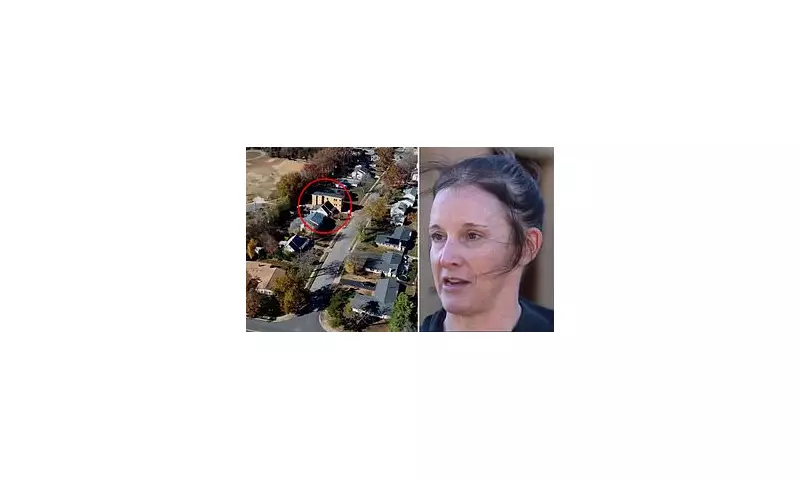
A quiet suburban street in Virginia has become the centre of a heated neighbourhood dispute after construction began on a massive three-storey home extension that some residents have labelled an eyesore.
Neighbourhood Division Over Marble Lane Extension
The controversy erupted on Marble Lane in Fairfax when a local family began building what neighbours describe as a townhouse-style addition to their property. The structure is intended to accommodate three generations living together under one roof, according to local residents.
While some neighbours have no objection to the project, others living nearby are outraged - though they direct their anger not at the family building the structure, but at county officials for permitting its construction.
Courtney Leonard, whose property sits immediately adjacent to the new building, has been particularly vocal about her concerns. She told media outlets: "I had been in communication with the county since the beginning of October voicing my concerns about the addition, and I want to reiterate that our view is that the onus is on the county for allowing it to get this far."
Zoning Laws at Heart of Controversy
Leonard explained that the area operates under what's known as a 'cluster zone' classification, which permits larger structures to be built on relatively small lots. She expressed shock that the family managed to secure approval from county authorities, calling it "a concern for everyone in our neighbourhood."
The frustrated neighbour outlined multiple practical concerns about the development's impact, including reduced natural light reaching her property, potential diminished electricity generation from her solar panels, and privacy issues arising from neighbouring windows overlooking her garden from elevated positions.
Perhaps most significantly, Leonard worries about the effect on her property's value. "When I decide to sell my house, how much of the buyer-portion did I just cut out, just knowing that they have to live next to that?" she questioned. "For me, it would be an immediate no. I would never live next to a structure like that."
She emphasised that one of the primary purposes of county zoning regulations should be protecting property values, suggesting this objective had been overlooked in this instance.
Political Intervention and Construction Halt
The situation has drawn attention from local officials, with Pat Herrity, a member of the Fairfax County Board of Supervisors, visiting the construction site personally. Herrity has pledged to propose amendments to local zoning laws at the board's next meeting scheduled for Tuesday.
"It clearly does not belong in our suburban neighborhoods - a structure like that - eight and a half feet from the property line, three stories tall for the length of the lot," Herrity stated firmly. "It has no place, and we need to fix our zoning ordinance to make sure that doesn't happen again."
Meanwhile, construction has been temporarily halted after Fairfax County staff determined that although the structure complies with height regulations, it currently stands too close to Leonard's property line. It remains unclear how the building family will address this regulatory obstacle.
The family undertaking the construction declined to comment when approached by media, stating they had nothing to add to the story.
Other residents have echoed Leonard's concerns. Katie Dash, who lives several blocks away, described the structure as shocking and expressed worry that similar developments might proliferate throughout the neighbourhood now that precedent has been set.
"If it could happen to [Leonard], it could happen to any of us," Dash remarked, highlighting the broader implications for the community.
Leonard acknowledged that her neighbours are technically within their rights to build the extension under current regulations but expressed frustration about not receiving prior notice before construction commenced. Despite her objections, she emphasised: "I really wish them no ill-will. I felt like an a**h*** for even bringing this up to begin with, but I felt like I had to notify the county."
The case has sparked wider conversations about property rights, neighbourhood character preservation, and the balance between individual freedom and community standards in suburban development.





